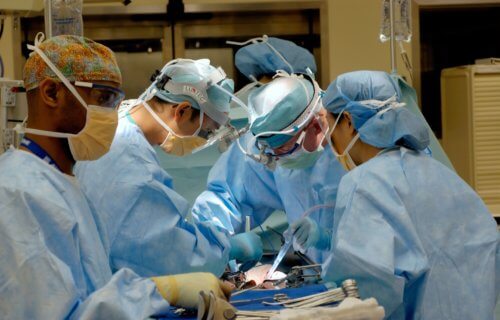TORONTO, Ontario — In sports, many fans argue about how much of a role “chemistry” plays in a club’s success. Now, a new study finds team chemistry really is the key to success — even for doctors performing surgery!
Researchers from the University of Toronto say partners or teammates don’t necessarily have to be best friends or enthralled with one another to find success on a professional level. However, legitimate tension between partners or co-workers can be a serious problem.
Plenty of jobs — such as police officers, air traffic controllers, and EMTs — have little room for error. Luckily, that’s why such positions almost always include partners. Most prior research on the impact of partner dynamics on success have found that positive emotions among team members generally improve performance across a variety of fields.
These latest findings, however, indicate that happiness and excitement among teammates don’t impact performance as much as many assume. Instead, study authors say tension was the only significant factor affecting how well people work together.
Good teamwork can save lives
How did they come to these findings? By interviewing pairs of cancer surgeons. Tension between two surgeons, or lack thereof, significantly impacted how well two pairs worked together. Moreover, pairs of surgeons appeared to become more relaxed around one another after performing one or two successful surgeries together.
“It’s not so much that creating positivity makes us flow. It’s more removing obstacles to flow that matters,” says Tiziana Casciaro, a professor of organizational behavior and human resource management and the Marcel Desautels Chair in Integrative Thinking at the Rotman School, in a university release.
Study authors decided to focus on duos specifically because pairs of employees perform the majority of organizational work. For the project, researchers gained access to 25 cancer surgeons at a German university-based hospital. The surgeons had a history of working together and typically performed local surgeries as a team depending on their availability and skillsets.
Researchers confidentially asked each surgeon to rate how comfortable they felt working with each of their colleagues — providing descriptions such as nervous, tense, excited, and relaxed. The team then compared those responses with hospital-provided data on actual surgeries performed by various combinations of these surgeons, both before and after the surveys.
The data reaped from the surveys helped study authors determine which partners the surgeons had actually worked with and how long their surgeries took. They also used those figures as an approximation for performance.
Generally, the less tense a surgeon felt around their partner, the shorter the surgery time. Less tension also displayed a significant connection with an earlier excellent surgical performance with that same colleague at least once over the prior several months.
If it’s not broke, don’t fix it
Incredibly, no other factors seemed to matter, not even feeling positive about a partner or having completed an earlier “average” surgery together. An average surgery may not be a perfect performance, but it at least indicates that they did not make any mistakes. Study authors admit they were shocked by this particular finding.
“It’s a big deal to avoid errors,” Prof. Casciaro notes.
Study authors speculate that it may be beneficial for scheduling managers to consider two surgeons’ past successes together while scheduling new surgeries. If a pair has had success in the past, people should be hesitant to fix what isn’t broken.
“Maybe the task is a little more challenging or a little more novel,” Prof. Casciaro concludes. “They will be equipped with the feeling they had with each other before and approach the new task with the right emotional makeup.”
Scheduling managers may also want to think about the personalities or complementary skills of two surgeons before pairing them together for the first time. Again, they don’t have to be best friends, but if it seems like they’re personalities and work styles will clash, it may not be a good idea.
The findings appear in the journal Academy of Management Discoveries.

